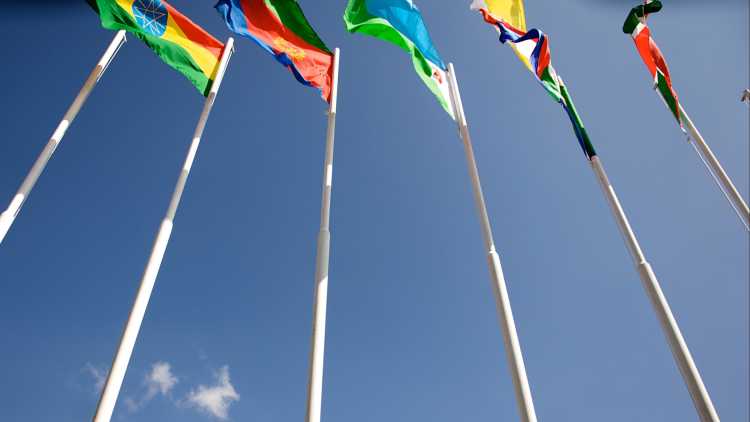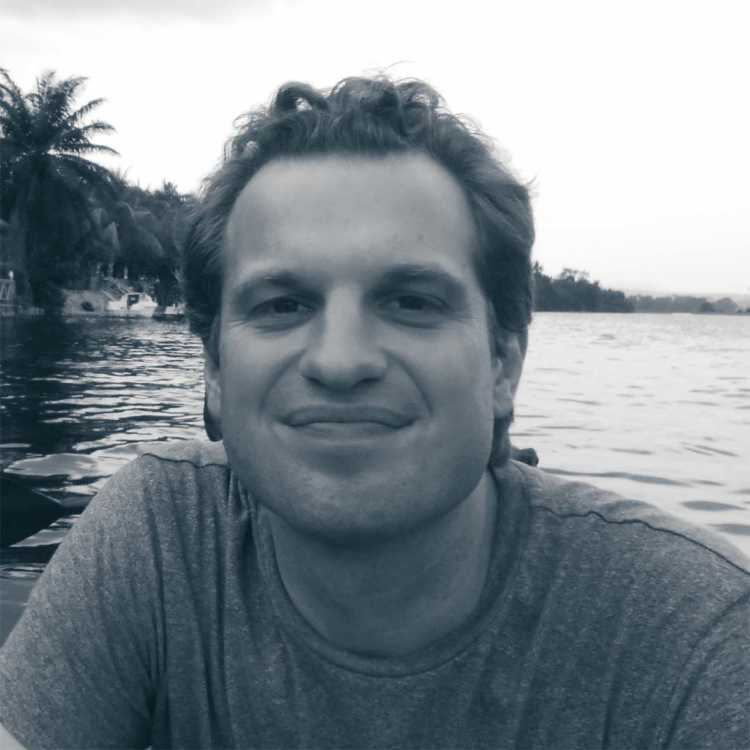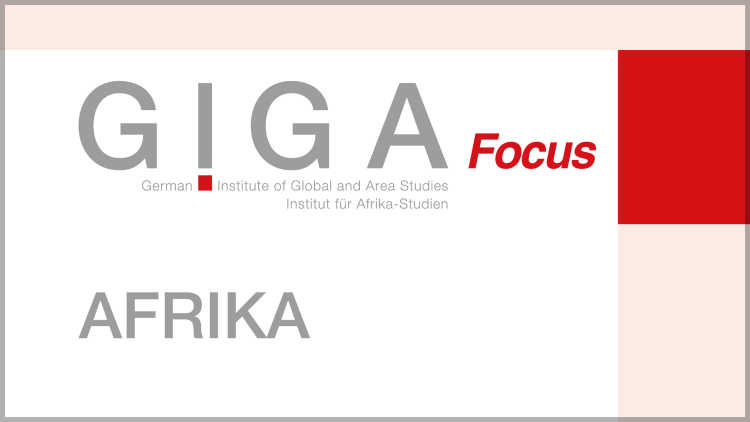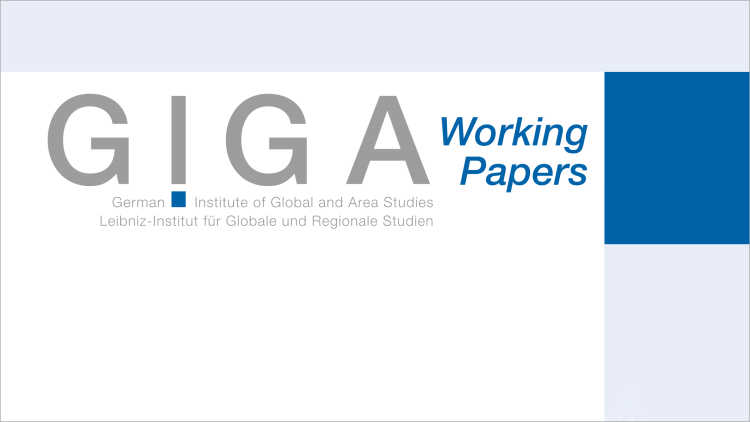- Home
- Publications
- GIGA Focus
- External Intervention to Strengthen Democracy in Africa
GIGA Focus Africa
External Intervention to Strengthen Democracy in Africa
Number 4 | 2016 | ISSN: 1862-3603
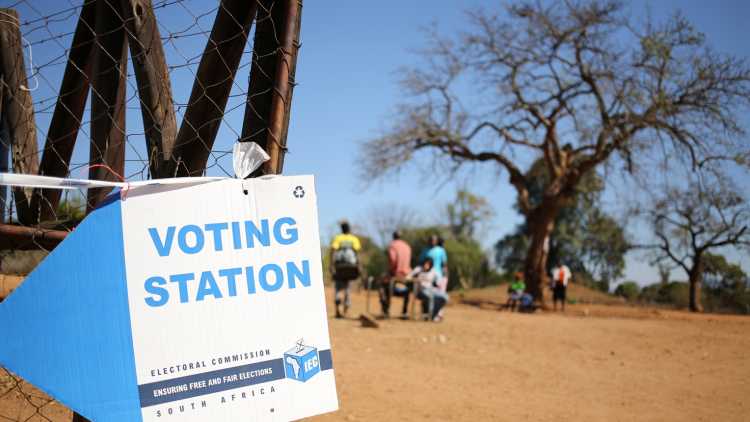
Although more competitive forms of authoritarianism and electoral democracy are today prevalent in most African countries, democratisation has slowed and in some places reversed. This coincides with an ever-growing rift between African citizens who are demanding further democratic rights and rulers who want to preserve their prerogatives. Western actors need to support those who hold the greatest democratic aspirations more fervently: African citizens themselves.
Western support has contributed to democratic development in Africa via two channels. First, political conditionality and “democratic sanctions” have increased the costs for leaders who severely infringe human and democratic rights. Second, Western intervention has helped to increase citizens’ awareness and their opposition to their regimes. Yet, the effect of external intervention has clear limits: no African country that has been subject to Western democratic sanctions since 1990 has become fully democratic.
Despite the discussions about a specific African variant of democracy – for instance, one which places greater emphasis on traditional authorities – the majority of African citizens support the procedural tenets of liberal democracy and universal human rights. This sentiment largely holds across countries with different levels of democracy and with varying exposure to external intervention.
The majority of Africans consider local elites to be primarily responsible for democratic progress; Africans value national sovereignty more highly than regional responsibility. In particular, the absence of one specific African democratic model and African citizens’ high regard for national sovereignty renders context-sensitive external support all the more important.
Policy Implications
Seen against the rise of China and other authoritarian powers, Western influence is declining in relative terms. However, Western countries still have an important role to play in supporting democracy in Africa. Western assistance should be citizen-centred and involve consistent support for civic education and common training programmes for young leaders across the political divide.
Rising Popular Demand for Democracy in Africa
African citizens’ quest for democracy is strong and growing. According to recently published Afrobarometer survey data, close to 70 per cent of Africans prefer democracy to any other political regime and only 9.7 per cent state that a non-democratic government can be preferable in certain circumstances. In the 32 countries surveyed in round six of the Afrobarometer (conducted in 2014 and 2015), more than half of Africans are “deep democrats” – that is, they support democracy and reject all three autocratic alternatives (military rule, single-party rule, and personalist rule). The exclusive demand for democracy has grown strongly, rising from 36 per cent in 2002 to 51 per cent in 2012 in the 16 African countries surveyed in rounds two to five of the Afrobarometer (Bratton and Houessou 2014). Yet this should not disguise huge disparities. While 78 per cent of interviewees in Zambia voiced both support for democracy and rejected all types of authoritarian rule, only 20 per cent to 25 per cent of respondents did so in Madagascar, Sudan, and Mozambique.
Africa has always been a prime target for interventions by external forces, be they great powers, non-governmental organisations, business corporations, or international organisations. The causes are manifold and range from “failing and collapsed” statehood (Zartman 1995), civil war, comparatively low development levels, to interests in the continent’s vast natural resources. Especially Western powers have also aimed at promoting democratic governance reforms.
Does this intervention make a difference? Do citizens in African countries that have been subject to severe external pressure in the form of “democratic sanctions” and, in addition, to concomitant UN peacekeeping perceive democracy differently than those in countries that have not? To further differentiate political systems’ democratic credentials in Africa, we use the broad Freedom House categorisation of “free,” “partly free,” and “not free” countries. According to the 2016 Freedom House Report (Freedom House 2016), democracies constitute a minority: only 9 of the 49 fully recognised sub-Saharan African countries are considered “free” (i.e. fully democratic); of the remaining 40, 20 are classified as “not free,” and 20 as “partly free.”
As can be seen from Figure 1, support for democracy is remarkably consistent across (a) country designations (“free,” “partly free,” and “not free”) and (b) experiences with external interventions. Citizens in African countries that have been subject to foreign intervention(s) since 1990 do not perceive democracy in a systematically different manner than those in countries that have been free of foreign intervention. Note, however, that Afrobarometer surveys have only been conducted in 7 of the 20 countries rated “not free” – 5 of which have been the targets of external intervention (Burundi, Ethiopia, Sudan, Uganda, and Cameroon). In contrast, surveys have been conducted in all 9 countries designated as “free” and in 17 of the 20 “partly free” countries.
A further Afrobarometer question demonstrates that African citizens’ understanding of the main tenets of democracy – similar to that of citizens in other world regions – focuses on key liberal-democratic values and processes, such as personal freedoms, multiparty competition, and government accountability. (The Afrobarometer question asked, “What, if anything, does ‘democracy’ mean to you?”) For the majority of Africans, the quality of elections is the main factor that determines the nature of the political systems in their respective countries.

External Interventions’ Limited yet Important Effects on Democratic Development
Interventions by external powers have fundamentally shaped the democratic trajectory in sub-Saharan Africa. With the end of the Cold War, democracy and human rights rose on the global agenda, and Western states increased their pressure on authoritarian regimes to democratise. Consequently, Western governments increasingly linked the allocation of development assistance to democratic reform in recipient countries. They also tried to foster democracy through electoral observation as well as through the support provided to parliamentarians, political parties, electoral commissions, the judiciary, the media, and civil society organisations (Brown 2013: 407). At the other end of the spectrum, African countries have been a prime target of Western “democratic sanctions” aimed at fostering and safeguarding democratic rights and processes abroad (Portela and von Soest 2012).
The effects of these interventions are contested but democracy promotion and pressure have overall contributed to a strengthening of democracy and the end of most hard forms of dictatorship on the continent. Dietrich and Wright (2015), for instance, observe that economic aid increases the likelihood of transition to multiparty politics, while direct democracy aid reduces the failure of multiparty regimes and limits electoral misconduct, thereby supporting democratic development. Carter (2016) also shows that Western powers can fundamentally increase the costs for African autocrats who violate human and democratic rights, particularly in aid-dependent countries, via political conditions attached to the provision of aid. However, no African country that has been subject to severe external intervention since 1990, be it Western sanctions or UN peacekeeping, has made the transition to “free” status (Namibia, which is rated “free,” represents a special case in this regard as it only became an independent state in March 1990). In this respect external interventions have continued to be unsuccessful in creating or contributing to full democracy. (It is important to note, however, that external intervention might systematically select the most difficult cases.)
The democratic development of those African countries that have seen severe external interventions, similar to those that have not, has remained uneven over the last 25 years. This confirms the fact that external intervention is only a secondary factor in influencing local political and social dynamics. Only a small group of countries that transitioned from “not free” to “partly free” have been able to maintain this status. This includes Kenya, sanctioned in the beginning of the 1990s, and Liberia, which rose to “partly free” status in 2005 when a transitional government introduced greater political freedom following the ouster of President Charles Taylor in August 2003.
A larger group has remained unstable and oscillates between being seen as “partly free” and “not free.” This includes the Central African Republic, which dropped from “partly free” to “not free” in 2004, rose back to “partly free” in 2006, and since 2014 has been classified as “not free” due to severe turmoil in the country. Côte d’Ivoire, Niger, and Mauritania have shown similar variation over the years. Other countries have exhibited a clear downward trend. For example, Ethiopia regressed and has been rated “not free” since 2010. Guinea-Bissau and Uganda, sanctioned in the beginning of the 1990s, had been considered “partly free” for more than 20 years, but dropped to “not free” more recently. Finally, there are also numerous countries that have been subject to external interventions that Freedom House has consistently rated “not free” since 1990 – namely, Chad, the Democratic Republic of Congo, Equatorial Guinea, and Sudan.
This assessment confirms the generally limited contribution of external interventions in bringing about full liberal democracy in sub-Saharan Africa. However, it also shows that Western support has played an important role in facilitating the transition to, albeit imperfect, multiparty politics in Africa. In addition, democratic sanctions have an overall slightly positive effect on the protection of political and civil rights in targeted countries (von Soest and Wahman 2015).
The Elusive Quest for One African Model of Democracy
Popular demand for democracy on the African continent should not imply that liberal democracy is without its discontents. Most importantly, some prominent African thinkers and leaders see its emphasis on individual rights and electoral competition as alien to the continent’s purported precolonial tradition of safeguarding communal rights and consensus building. Tanzania’s first president, Julius Nyerere (1975), early on asserted that his ujamaa (“familyhood”) socialism – with its four main facets of consciousness, equality, villagisation, and democracy – in conjunction with a single-party state would better fit the customs and structures of African society. While there is no longer any real discussion about the political advantages of traditional one-party states in Africa, a widespread sentiment exists that the “strong role of religious, ethnic, and communal ties [sits] uneasily with the Western emphasis placed on individual rights” (Youngs 2015: 49). It is contested whether imported templates of liberal democracy can adequately deal with the development challenges and multi-ethnic character of African societies. For Ake (1996), this form of government is in itself not “emancipatory” and is therefore insufficient to safeguard the rights of African citizens vis-à-vis the political elite and to fight economic marginality.
In addition, many saw the spread of liberal democracy after the end of the Cold War as being inherently tied to the pressure to adopt much-despised neo-liberal economic reform on the continent. Today, African elites increasingly call into question the superiority of democracies in providing legitimate and effective governance. The varied successes of Western democracy in overcoming political and economic crises as well as the increasing self-confidence and growing power on the global stage of authoritarian regimes further dent liberal democracy’s attractiveness (Plattner 2015).
Most African societies value communitarian values and consensus more highly than other societies. Also, traditional authorities are often integrated into the village level – in Botswana, for example, this is through the kgotla system (Molomo 2014). The common denominator is to encourage local specificity and consensual power-sharing and to generate stronger support for new forms of participation, particularly at the local level. Yet, despite the search for local variants of democracy, the Afrobarometer survey provides evidence of African citizens’ strong support for safeguarding universal human and democratic rights and the fundamental tenets of democracy.
The political and social conditions in Africa, and even within African countries, are extremely diverse, which makes it difficult – if not impossible – to develop a coherent variant of democracy. There is no uniform set of values and traditions. As affirmed by Gyimah-Boadi (2015) and Khadiagala (2016), African political traditions contain not only democratic but also authoritarian facets. It is noteworthy that the most prominent current purported proponents of “African democracy,” such as Uganda’s President Museveni and Rwanda’s President Kagame, repeatedly misuse this term to reduce the rights of the political opposition and the freedom of the independent media and, ultimately, to legitimise their non-democratic rule.
Overall, the contours of a single model of African democracy are not yet visible. Analysts converge (a) in their criticism of the simple application of Western concepts and the colonial and postcolonial transfer of institutional templates to Africa (Mkandawire 2015; Mbembe 2000) and (b) in their appreciation of context-sensitive variants of democracy. For instance, Tendai Biti, a prominent opposition politician from Zimbabwe, questions the applicability of the British first-past-the-post electoral system to the social and political conditions in his country. This makes the case for providing assistance to African citizens to devise their own way of strengthening democracy based on the democratic values they support.
Creating New Enthusiasm for Democracy Support in Africa
Sub-Saharan Africa is characterised by very different political trajectories, but overall democratic progress has come to a halt. Numerous countries (at least the 20 out of 49 recognised states rated as “partly free”) today operate in a “grey zone” between autocracy and liberal democracy. The strongest supporters of democracy on the continent are without any doubt its citizens, whereas the “embrace of democratic ideals by African regional bodies and some members of the political elite in the early 2000s was short-lived” (Gyimah-Boadi 2015: 107).
This is despite the fact that regional conventions and the provisions against the “unconstitutional change of government” have contributed to an overall positive democratic development in Africa since the end of the Cold War. Regional electoral monitoring, although often being lenient, has become a routine procedure and the African Union (AU) and subregional organisations have imposed sanctions on various occasions, for instance on the Central African Republic (2003–2005; 2013 to date), Togo (2005), Mauritania (2005–2007; 2008–2009), Guinea (2008–2011), Niger (2010–2011), Cote d’Ivoire (2010–2011), and Mali (2012).

However, Africans see the prevention of government abuses and the safeguarding of democratic values as resting primarily with domestic actors. According to Afrobarometer data, on average 57 per cent of interviewees in sub-Saharan Africa value national sovereignty more highly than the “regional responsibility to prevent abuses,” and only 36 per cent agree that African governments “have a duty to try to guarantee free elections and prevent human rights abuses in other countries in the region, for example by using political pressure, economic sanctions or military force” (see Figure 2).
Only in one country, Burkina Faso, did interviewees report a preference for regional intervention, with 65 per cent affirming a duty to guarantee free elections and prevent human rights abuses in other countries. Given the country’s political crisis in 2014, this result inherently makes sense. At that time, President Blaise Compaoré, who governed from 1987 up until 2014, faced protests against an anticipated change to the Constitution that would have allowed him to prolong his rule; he finally resigned following a coup d’état. Regional bodies such as the AU and the Economic Community of West African States (ECOWAS) were instrumental in facilitating and pressuring for a negotiated settlement. The immediate crisis ended with the presidential election in November 2015, which was won by the opposition politician Roch Marc Kaboré. Societies that are split between intervention and independence are Togo, Sierra Leone, Zimbabwe, Burundi, and Swaziland – all countries that have been ravaged by domestic crises that will be difficult to resolve without external intervention. Notably, the approval for regional intervention to safeguard democratic values remains significantly lower in “free” countries. In Namibia, for example, only 22.4 per cent of citizens voice a preference for regional intervention.
Overall, it is clear that African citizens consider national sovereignty an important value and seem prepared to accept (regional) external intervention in times of emergency only. In acute crises, opposition actors often argue in favour of external pressure – the international campaign against the former South African apartheid government being the continent’s most prominent example.
For all their faults, Western interventions have contributed to the overall positive democratic development in sub-Saharan Africa since the end of the Cold War. They alone have not been successful in bringing about liberal democratic governance, but in many cases they have supported “partly free” political order, be it electoral democracy or competitive authoritarianism. In particular, the absence of a single model of African democracy and African citizens’ high regard for national sovereignty render context-sensitive external intervention all the more important. Based on what Khadiagala (2016: 3) calls a “growing consensus among citizens about the centrality of the basic universal norms and values that constitute democracy,” external intervention should – even more so than in the past – focus on citizen empowerment to strengthen the accountability of governments on the African continent.
Besides leading by example and guaranteeing legitimate and effective democratic governance at home, Western governments can support African citizens’ in developing their own democratic paths. A promising instrument already utilised by some political foundations – particularly in highly polarised societies – is the support of young leadership training programmes that bring together promising talent from the media, NGOs, the business sector, and parties across the political divide. The consistent support for civic education and funding of local initiatives dedicated to democratic values are further useful tools. In the most severe cases of human and democratic rights violations, external pressure on governments may amplify domestic opposition by making governments’ actions more costly. External intervention can, for instance, help to put pressure on African rulers who attempt to remove constitutional term limits to prolong their rule (Carter 2016).
Low levels of enthusiasm for democracy among elites in many African countries, the growing assertiveness of authoritarian powers, particularly China, and the contestation of democratic governance in many parts of the world make consistent and adaptive external support for democratic progress not only more difficult but also all the more important. It is essential that external actors consistently back the real torchbearers of African democracy: African citizens.
Footnotes
References
Afrobarometer (2016), Afrobarometer - Round 6, 1. July, http://afrobarometer.org/online-data-analysis (15 July 2016).
Ake, Claude (1996), Is Africa Democratizing?, Lagos: Malthouse Press.
Bratton, Michael, and Richard Houessou (2014), Demand for Democracy Is Rising in Africa, but Most Political Leaders Fail to Deliver, Policy Paper, 11, www.cddgh.org/_upload/general/file/afrobarometer/R5%20release_PP11%20democracy_23apr14_final.pdf (15 July 2016).
Brown, Stephen (2013), Democracy Promotion, in: Nic Cheeseman, David Anderson und Andrea Scheibler (eds), Routledge Handbook of African Politics, 1 edition, New York, NY: Routledge.
Carter, Brett L. (2016), The Struggle over Term Limits in Africa: How International Pressure Can Help, in: Journal of Democracy, 27, 3, 36-50.
Dietrich, Simone, and Joseph Wright (2015), Foreign Aid Allocation Tactics and Democratic Change in Africa, in: The Journal of Politics, 77, 1, 216-234.
Freedom House (2016), Freedom in the World 2016: Anxious Dictators, Wavering Democracies: Global Freedom under Pressure, Washington, DC: Freedom House.
Gyimah-Boadi, Emmanuel (2015), Africa’s Waning Democratic Commitment, in: Journal of Democracy, 26, 1, 101-113.
Khadiagala, Gilbert (2016), Looking Beyond Traditional Africa, in: Richard Youngs (ed), Non-Western Ideas for Democratic Renewal, Washington, DC: Carnegie Endowment for International Peace, 3-4.
Mbembe, Achille (2000), At the Edge of the World: Boundaries, Territoriality, and Sovereignty in Africa, in: Public Culture, 12, 1, 259-284.
Mkandawire, Thandika (2015), Neopatrimonialism and the Political Economy of Economic Performance in Africa: Critical Reflections, in: World Politics, 67, 3, 563-612.
Molomo, Mpho G. (2014), Chieftainship (Bogosi) Endures Despite Democratic Consolidation in Botswana, Afrobarometer Briefing Paper, 130.
Nyerere, Julius K. (1975), Ujamaa - The Basis of African Socialism, in: Gideon-Cyrus Makau Mutiso and S. W. Rohio (eds), Readings in African Political Thought, London: Heinemann Educational Books.
Plattner, Marc F. (2015), Is Democracy in Decline?, in: Journal of Democracy, 26, 1, 5-10.
Portela, Clara, and Christian von Soest (2012), GIGA Sanctions Dataset Codebook: Version 18 June 2012, Hamburg: GIGA.
von Soest, Christian, and Michael Wahman (2015), Are Democratic Sanctions Really Counterproductive?, in: Democratization, 22, 6, 957-980.
Youngs, Richard (2015), The Puzzle of Non-Western Democracy, Washington, DC: Carnegie Endowment for International Peace.
Zartman, I. William (1995), Collapsed States: The Disintegration and Restoration of Legitimate Authority, Boulder, CO: Lynne Rienner Publishers.
General Editor GIGA Focus
Editor GIGA Focus Africa
Regional Institutes
Research Programmes
How to cite this article
von Soest, Christian, and Fabian Bohnenberger (2016), External Intervention to Strengthen Democracy in Africa, GIGA Focus Africa, 4, Hamburg: German Institute for Global and Area Studies (GIGA), http://nbn-resolving.de/urn:nbn:de:0168-ssoar-51651-3
Imprint
The GIGA Focus is an Open Access publication and can be read on the Internet and downloaded free of charge at www.giga-hamburg.de/en/publications/giga-focus. According to the conditions of the Creative-Commons license Attribution-No Derivative Works 3.0, this publication may be freely duplicated, circulated, and made accessible to the public. The particular conditions include the correct indication of the initial publication as GIGA Focus and no changes in or abbreviation of texts.
The German Institute for Global and Area Studies (GIGA) – Leibniz-Institut für Globale und Regionale Studien in Hamburg publishes the Focus series on Africa, Asia, Latin America, the Middle East and global issues. The GIGA Focus is edited and published by the GIGA. The views and opinions expressed are solely those of the authors and do not necessarily reflect those of the institute. Authors alone are responsible for the content of their articles. GIGA and the authors cannot be held liable for any errors and omissions, or for any consequences arising from the use of the information provided.




